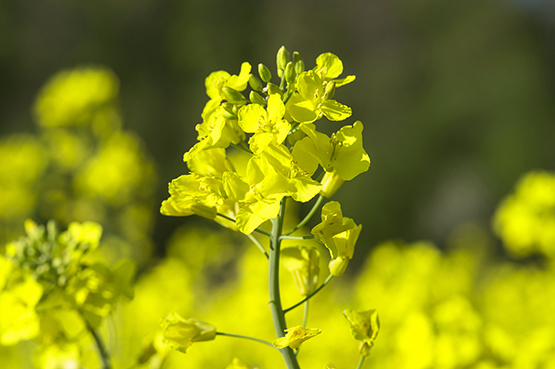Rapeseed oil is ‘flavour of the month' at the moment. Nutritionists extol its high proportion of unsaturated fatty acids (linoleic and linolenic acids, omega-3 fatty acids) which make this culinary oil particularly nutritious. At the same time, the catering trade is rediscovering the taste attributes of rapeseed oil, and is using it more and more frequently in food preparation. Demand for this product - especially for cold-pressed, organic rapeseed oil - is steadily increasing. Although oilseed rape is only of secondary importance in organic farming, over the last few years the area devoted to the organically grown crop has stood at around 100 ha, whilst there is a market for around 250 ha. The main reason for the modest cultivation rate is the lack of yield security, with many factors (especially weed pressure and insect infestation) contributing to a high risk of harvest losses.
Small-plot and strip trials
Together with its partner institutions, Agroscope has set itself the objectives of determining the causes of the existing yield instability and testing new pure-line varieties in terms of their suitability for extensive and organic cultivation. To this end, varieties grown under organic conditions are compared with one another (exact trials and strip trials), and rape-beetle control methods which are suitable for organic farming are tested and developed.






